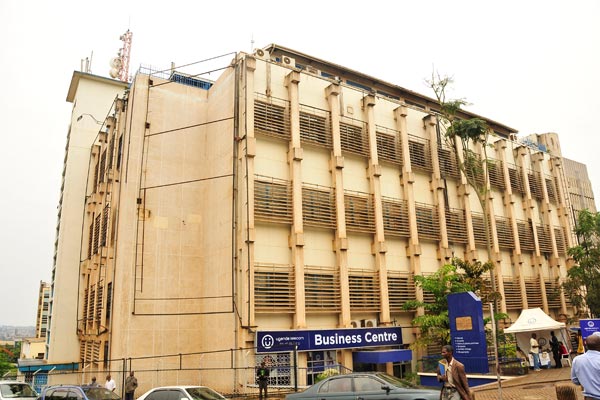Uganda’s government has taken over management of hugely indebted Uganda Telecom effective immediately.
Finance minister Matia Kasaija on Wednesday afternoon said that government had decided to take over the affairs and management of Utl with immediate effect, and will engage Libyan owners Ucom to ensure an orderly transition.
TheUgandan understands that UTL needs a big capital injection to at least turnaround. The Libyans have made a decision not to inject any more capital into the ailing Telecom. So UG gov’t has decided to take over the burden.
This follows news that the Libyan investors were masking fraud, allegations which are being investigated by Parliament, that the company was being grossly mismanaged by its top managers. Ucom has been responsible for the management of the telecom.
The Libyans have made a decision not to inject any more capital into the ailing telecom, so the Uganda government has decided to take over the burden.
UTL says it will issue a statement later, in response.
UTL has been making the headlines especially after questions around it survival are being asked in a select committee in Parliament.
The queries range from poor management, massive debt accumulation, none-payment of obligations to other telecom companies and Uganda Communications Commission. UTL until today was owned 69 per cent by the Libyan Government with the Uganda Government holding a 31 per cent stake.

Last year, Utl’s licence was close to being suspended after the regulator, Uganda Communications Commission (UCC), noted that the liabilities of the company had exceeded their assets. They were also indebted to a tune of about Shs128b and also had unpaid arrears of more than Shs60b to UCC and other vendors in interconnection fees. At the time, the Uganda Government and Libyan Government went into crisis talks on how to save the telecom company from collapse. During the negotiations, it was agreed that at least $150m be raised as capital to inject into the company.
Where it all started from
Utl’s troubles are historical considering it was one of the government parastatals that held significant assets but was underperforming. In the 1990’s, the Uganda government embarked on the privatisation process that led to the separation of Uganda Posts and Telecommunications into two separate ventures. Posta Uganda took on the Uganda Posts and the Telecommunications arm led to the birth of Mango, a telecom company. Notably, Posta Uganda was never privatised but the telecom segment was, with a German firm UCOM taking over a stake of 51 per cent for $35m (Shs127b). In 2006, that stake was acquired by the Libyan Government under LAP Green Investments.
At the time, Mango was the second largest telecom company in Uganda. LAP Green is reported to have edged out Telekom of South Africa. However, Wikileaks files indicate that the deal which brought LAP Green was part of the strategies for improving relations between Uganda and Libya.
“This is the third major investment by the Libyan government in Uganda in the last year. LAP purchased a 60 per cent stake of the textile firm Tri-Star and was awarded the tender to build the Uganda-Kenya oil pipeline. In 2005, LAP also purchased a majority of shares in the National Housing and Construction Company, a former parastatal,” a 2007 Wikileaks cable reads.
This, relationship in relation to Uganda Telecom and all the other assets have been all but troubled.
“For the past eight years, Utl has faced numerous challenges. During this time, the shareholders and Board of Directors have worked hard to sustain the business,” Mr Kaboyo said.
Utl had inherited numerous liabilities with some of the assets already encumbered by large debt exposure. During this period, the Libyan government continued extending millions of dollars in Shareholder loans to provide capital for the telecom. The total investment to 2015 was about $300m (Sh1 trillion). Utl losses kept escalating, depriving the telecom of the much-needed retained earnings to re-invest.
In 2008, the Uganda government also quietly sold another 18 per cent stake to the Libyans, increasing their stake to 69 per cent. This deal was a debt swap and dealt a blow to any plans by the Uganda government to list 49 per cent of the company on the Uganda Securities Exchange. Utl’s current financial status is even far less attractive since it is not investing enough and has a large exposure to liabilities.











